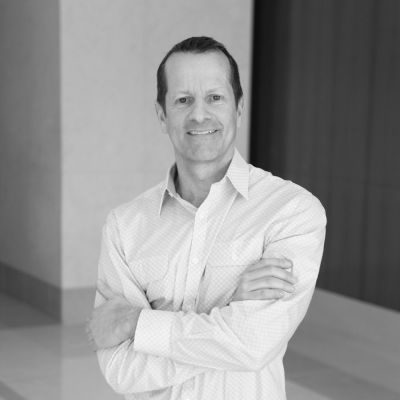The importance of inclusivity in youth travel
More than 50% of Gen Z identify as something other than straight. Gaining an understanding of the diverse guests who stay in your hostels, go on your tours, travel with your companies etc is essential to providing excellent guest service. Cue Ed Salvato (pronouns he/him), the LGBTQ tourism and hospitality expert. Throughout his 20-year career, Ed has co-founded the first app-based queer travel magazine ManAboutWorld and today, provides strategic, actionable consultation, travel safety and inclusivity training to travel organisations.
We caught up with Ed ahead of his session at WYSTC to find out more about how the travel and tourism industry can welcome and accommodate LGBTQ+ youth travellers.

Tell us a little about yourself. What drew you to the tourism and hospitality industry?
After working for several years in market research and obtaining my MBA, I had a great career but was dissatisfied. I’ve always loved to travel and tell people about my trips and after extensive soul searching I had a simple but profound epiphany about my true passion which led me to tourism & hospitality.
I moved from Boston to LA to start a job as the editor of a small, but important gay travel publication called OUT & ABOUT. That company was acquired and I became editor in chief of The OUT Traveler and editor of several online publications including; The Advocate and Out. I co-founded ManAboutWorld, the first app-based queer travel magazine and HospitableMe Consulting, which offered strategic consulting and inclusive hospitality training.
I am now a solo practitioner through Salvato Consulting offering LGBTQ marketing strategy, travel safety and inclusive hospitality education and training to tourism and hospitality brands and the meetings industry. I pride myself on offering smart, actionable consulting and education that is never condescending and never assumes familiarity with the rich but complex culture of the LGBTQ segment. Not everyone is comfortable talking about this subject, and I understand that. Professionals in hospitality and tourism must address the topic, and it’s crucial to have a seasoned facilitator to create a productive, safe and enjoyable conversation with actionable learning outcomes.
How do you approach businesses based in regions where treatment of the LGBTQ community is not considered?
I approach all businesses with the understanding that there are challenges and opportunities within the LGBTQ community. Whatever the end of the marketing spectrum organisations are at towards promoting themselves in the segment, businesses will continue to receive increasingly diverse guests. I urge organisations to at least understand how to authentically engage with and welcome all guests.
There are still approximately 70 countries that criminalise homosexuality, including 11, where the punishment is the death penalty. There are nearly 30 countries that offer marriage equality. The welcome LGBTQ travellers receive depends on more than the legality, and you can be warmly welcomed in a legally anti-LGBTQ destination and receive terrible service in an LGBTQ-friendly destination. Implementing inclusivity practices across external operations all comes down to the level of awareness and training for both marketers and customer-facing staff.
What are organisations that serve youth travellers are currently doing to make LGBTQ travellers feel welcome?
Youth travellers are a market that expects an inclusive service, no matter their orientation or gender identity. Hostels, for example can implement smart policies such as de-segregating same-sex dormortories for accommodating guests with non-normative gender identities. There are many other ways to affirmatively make LGBTQ travellers feel welcome, some practices include;
- Partnering with and promoting attractions, history and culture of interest to the segment.
- Simple signage, a well-placed rainbow decal can be very effective!
- Inclusive web content and social media.
- LGBTQ welcoming and inclusive staff training.
- Private toilets for individuals.
I’ve helped organisations conduct audits of all marketing materials and mystery shopping to assess the true welcome LGBTQ guests receive.
What are the typical “bad service” scenarios you have heard about/ experienced during your time training organisations? Where do you think organisations “go wrong”?
Scenarios I hear about often are when staff make assumptions about guests based on perceived relationship status or gender, for example, two women checking in are assumed to be sisters and are offered separate beds, masculine-presenting people are referred to as “gentlemen” even if they do not identify to this gender-norm, or children are asked where their mother or father is when the two parents of the same gender are present. I recommend understanding and using non-gendered language, including “they” as a pronoun.
If the customer-facing teams make mistakes that could cause the guest anxiety, or a loss of business. The very nature of travellers and guests is changing rapidly before our eyes. Education is critical for all staff to deliver authentic engagement and a warm welcome to all guests. This is a learned technique. If the customer-facing teams are making costly mistakes, it’s the responsibility of the organisation to rectify that through appropriate training.
Do you think that organisations and destinations that promote themselves to travellers from the LGBTQ community understand the safety requirements these travellers need? If not, where do they start in gaining this knowledge?
In a word, no. Most organisations now understand they need to have a well-lit parking lot or a defibrillator as part of their duty of care. But very few understand that to authentically welcome LGBTQ and other diverse guests you have a duty of care to understand them and their needs, behaviours and concerns. You have to learn a little about the history of LGBTQ travellers and the pitiful lack of welcome (and open antagonism and abuse) the community has suffered. 70 countries still criminalise homosexuality and that even in supposedly safe countries, LGBTQ people can still be harassed, they are more cautious about the travel decisions made compared to others. The good news is that this segment rewards even small acts of inclusiveness with their loyalty and a little training and strategy can go a long way. It has also been proven that when companies offer a more engaging and authentic welcome to LGBTQ travellers, a better service is provided to all guests. The investment you make with this segment pays dividends throughout your business.
Ed will share more tips and insights at WYSTC 2020 Online in his session, Invite, respect and protect younger LGBTQ travellers. Register now to secure your place.

Recent Comments